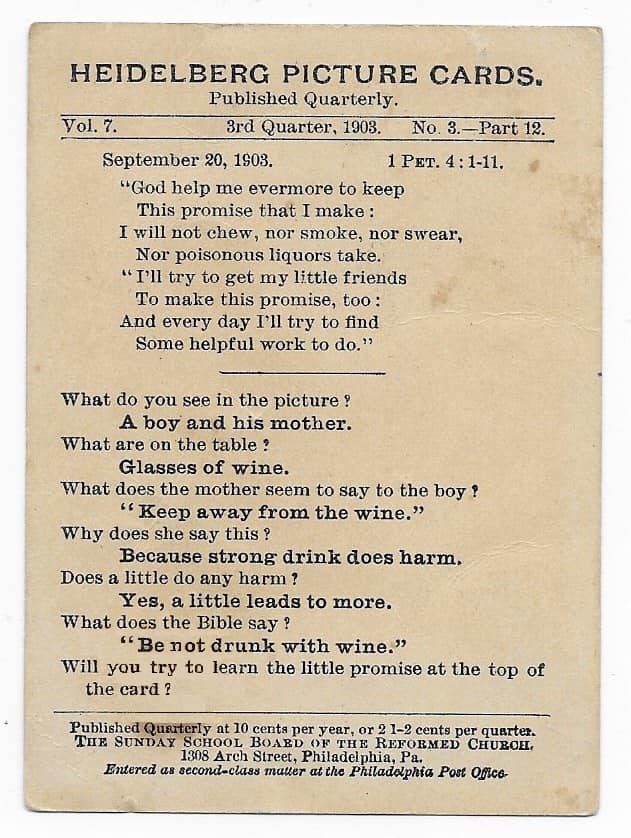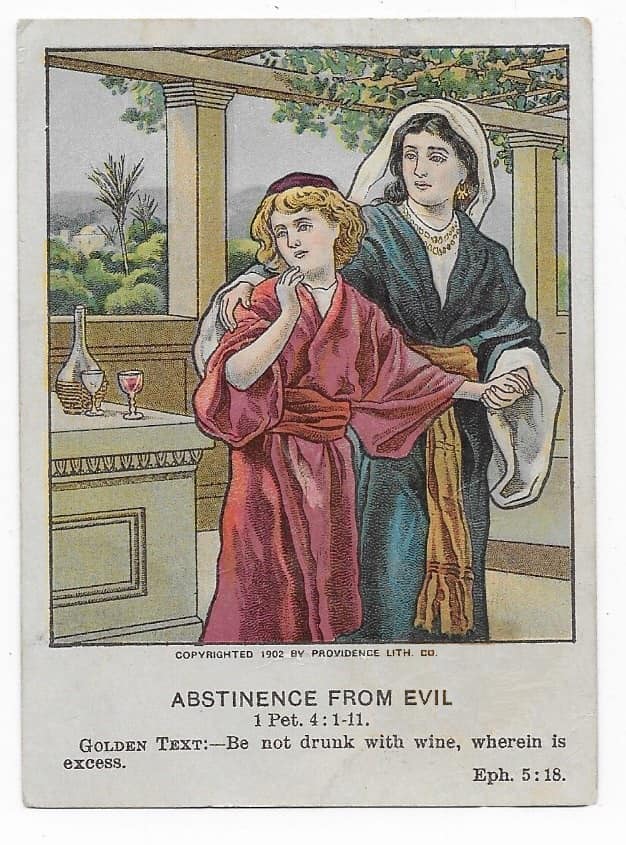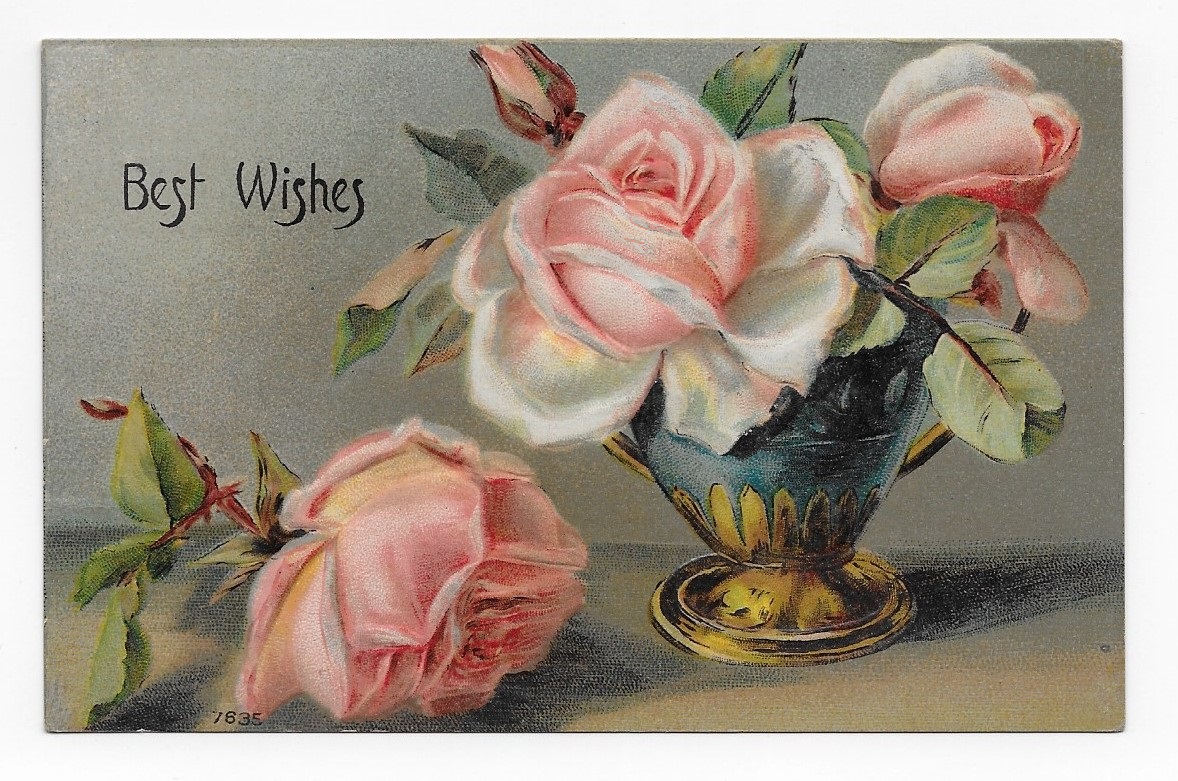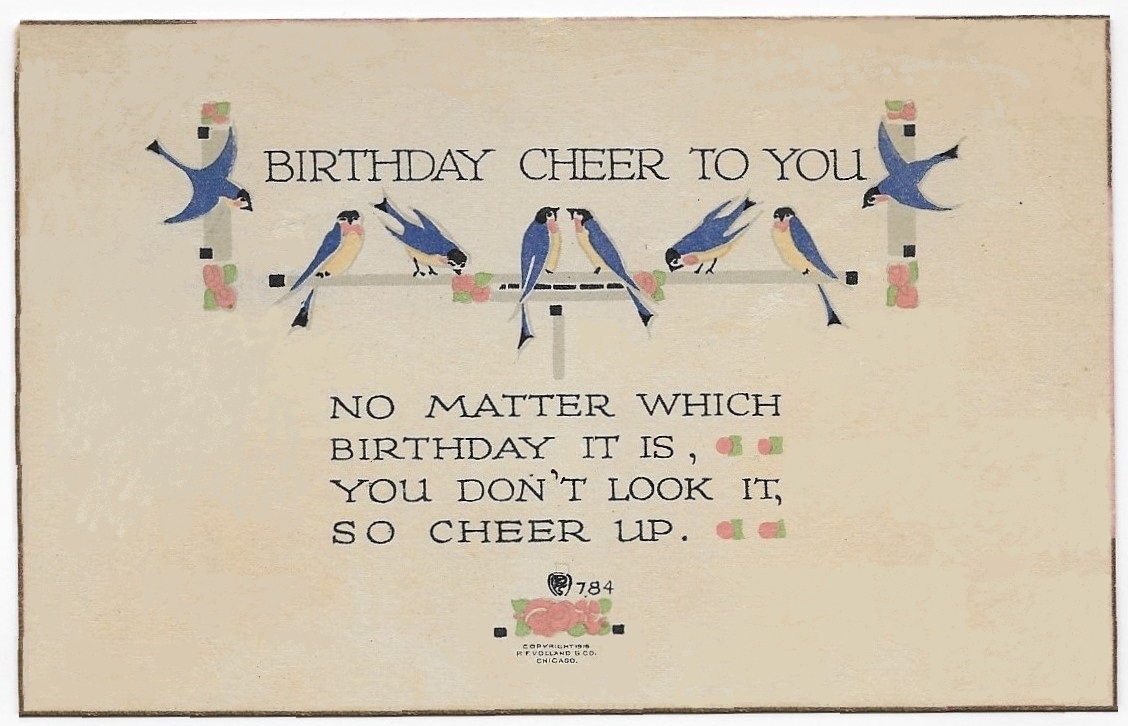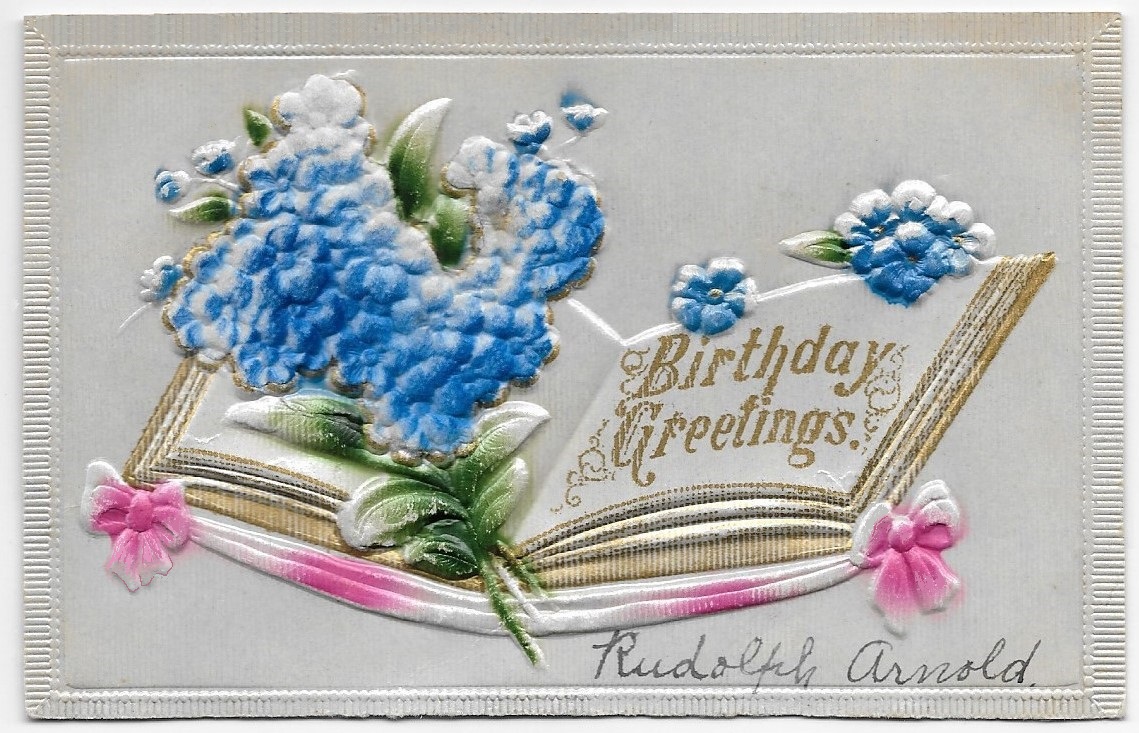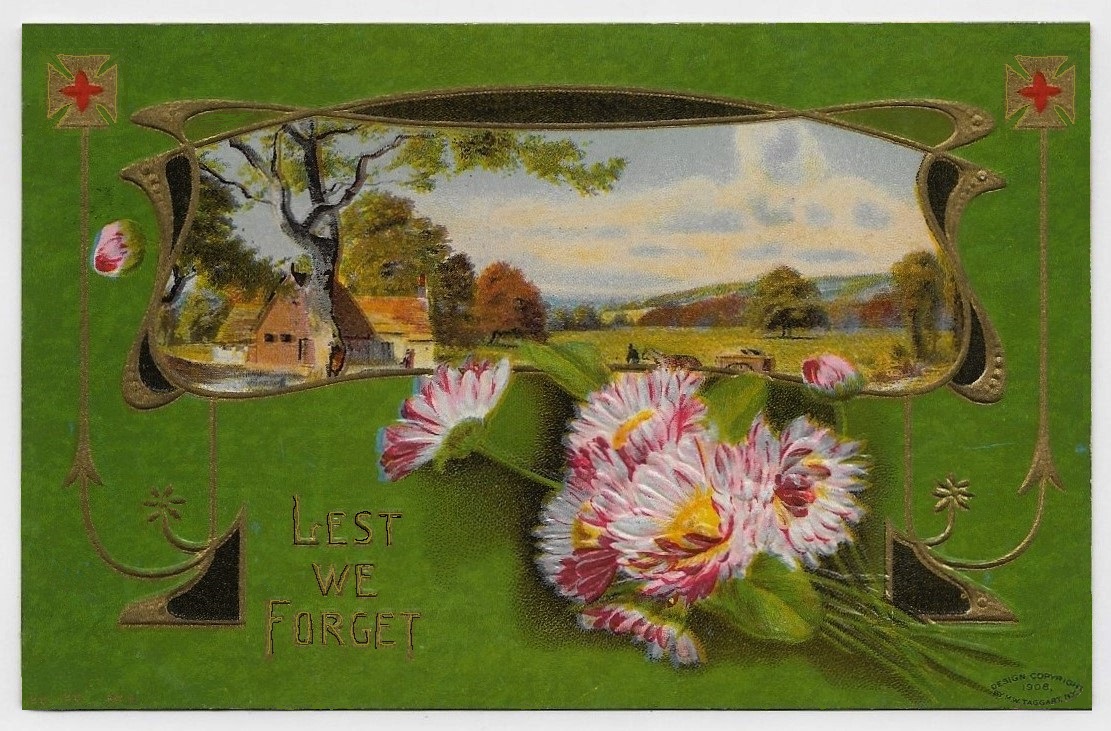This Sunday School card was published by the Sunday School Board of the Reformed Church which was located on Arch Street in Philadelphia.
The illustrations were copyrighted in 1902 by the Providence Lithography Company, a common source of religious designs.
You were likely to receive this picture card if you were attending Sunday School in a Reformed Church (or some Presbyterian Churches) on September 30, 1903.
Titled, “Heidelberg Picture Cards”, these Sunday School lessons conformed to the Reformed credal statements of Faith found in the Heidelberg Confession.
Abstinence from alcohol was once a teaching common to many Protestant Churches, notably the Methodists and many Baptist groups.
The practice is less-commonly observed today.
Interestingly, the stern Calvinist settlers of New England were not teetotalers (the Mayflower carried thousands of bottles of wine and far more beer than water) – but the Puritan communities did punish drunkenness severely.
Often dismissed as severe or repressive, the teaching of abstinence occurred against a background of high alcohol consumption.
Americans drank a lot – many of the Founding Fathers took significant amounts of alcohol with every meal and alcohol was a key ingredient of almost every remedy for injury, discomfort, or ailments of any kind.
Throughout the 19th century, individual tolerance for alcohol was very high – consult the menus or accounts of public banquets and celebrations to confirm the prodigious amounts of alcohol consumed.
Before Prohibition, the average citizen of the US drank more raw alcohol per year than at any time in history.
The Temperance Movement, however impractical, addressed real problems of health, economic instability, and public drunkenness.
So, although Prohibition failed to abolish drinking and created a pervasive culture of law-breaking, it did succeed in reducing significantly the patterns of alcohol consumption for fifty years.
In this Sunday School lesson, the evil of drunkenness is prevented only by total abstinence – a conviction which underlies the movement for Prohibition.
The stricture, however, does not reflect the experience of most individuals for whom the consumption of wine does not lead to adversity.
